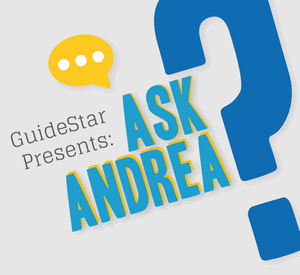Are you an extrovert or an introvert?
To quote a remarkable graphic explanation of introversion and extroversion, people who are introverts make their own energy and, rather than taking it from others, they give it on social contact. They find interaction exhausting and need time to recharge.
Extroverts, on the other hand gather their energy from their surroundings. They absorb the “good vibes” of the people around them and need a lot of social interaction.
I know all too well the power and pitfalls of being an extrovert. While introverts generate their own energy and ideas, extroverts, like me, have minds that function best when they’re tickled.
If you’re an extrovert, your mind is like a ball of pent up energy waiting for someone or something to connect to.
Walking down the street, you’ll catch someone’s eye and nod or say hello. In a group, you’ll pick up an idea someone throws out, put a spin on it and pass it back. You probably check your email every ten minutes to see who’s connecting.
For us extroverts, the process of interacting produces energy. It’s fun, creative and downright exciting.
But there’s a big downside of being an extrovert.
Extroverts are Wired to be Reactive
We find it difficult to sit by ourselves and develop plans. And simply carrying out a pre-made plan step by step. Well… that’s just deadly.
If you’re an extrovert, you may know what this feels like.
You’ve got a big project to plan. You’ve cleared your desk and handled the immediate pressing issues. You’re excited that finally, you’ve carved out some time and space to figure it out. You sit down and … OMG … nothing happens.
If you were an introvert, you’d be in heaven, ready to pull from your inner resources to shape and plan the project.
But as an extrovert, the opening you’ve created feels as bad as dead air on the radio.
You do better interacting and reacting than you do pro-acting.
Having spent my entire life in the extrovert zone, I’ve finally learned that I can’t fight my need for stimulation. I’ve got to use it to my advantage. So I’ve come up three strategies to help extroverts function at their best.
3 Strategies to Help Extroverts be Productive
1. Work with a partner.
Don’t force yourself to work alone. You don’t do it well. Get a partner or form a small group of people with whom you can meet periodically to discuss your project. Use that individual or group to help you generate ideas and hold you accountable for results.
2. Make commitments.
Pick a completion date. Don’t just put it on your calendar. But get yourself an agreement with someone else about what’s got to be done and by when you’ve got to do it. You’ll find that you can dance with deadlines almost as well as you can dance with people.
3. Give in to your social self.
Make dates for coffee or lunch with people you admire. Talk with them about what you’re doing. Get their ideas and feedback. In a 20 minute conversation you may get the fodder and inspiration you need to shape the next piece of your project. For you, socializing isn’t frivolous, it’s generative.
Embracing Your Extroversion
In truth, all my adult life I’ve envied introverts. I’ve wanted to be that person who can just sit quietly in a room and think… that person who can absorb information and make sense of it internally… that person who can generate ideas on my own in a quiet, well-organized way.
But that’s not me. And if you are an extrovert, that’s not you either.
So stop fretting about who you are not and start flowing with who you are.
Take Stock of Your Extroversion (or Introversion) Tendencies
Make a written inventory of the times in which you have functioned at your best. Pay attention to the process that worked for you. Did you happily hunker down by yourself? Or did you piggy back on the energy of others. Once you understand how you function best, take advantage of your natural style.
Are you an extrovert or an introvert? Share with us how you get your style to work at its best.

Immensely grateful for your focus on introverts and extroverts, Andrea. Very helpful for seeing others more compassionately (vs simply reacting to their outward behaviors) – especially helpful for understanding those who are closest to us (i.e. the people whose behaviors would be most likely to annoy us! 🙂 ) Thank you!!
“If you were an introvert, you’d be in heaven, ready to pull from your inner resources to shape and plan the project.” Or else you’d be on the couch having a panic attack! (Oops, TMI)
Seriously, this is a great post, Andrea. Your ideas for harnessing that glorious Extravert energy are spot on.